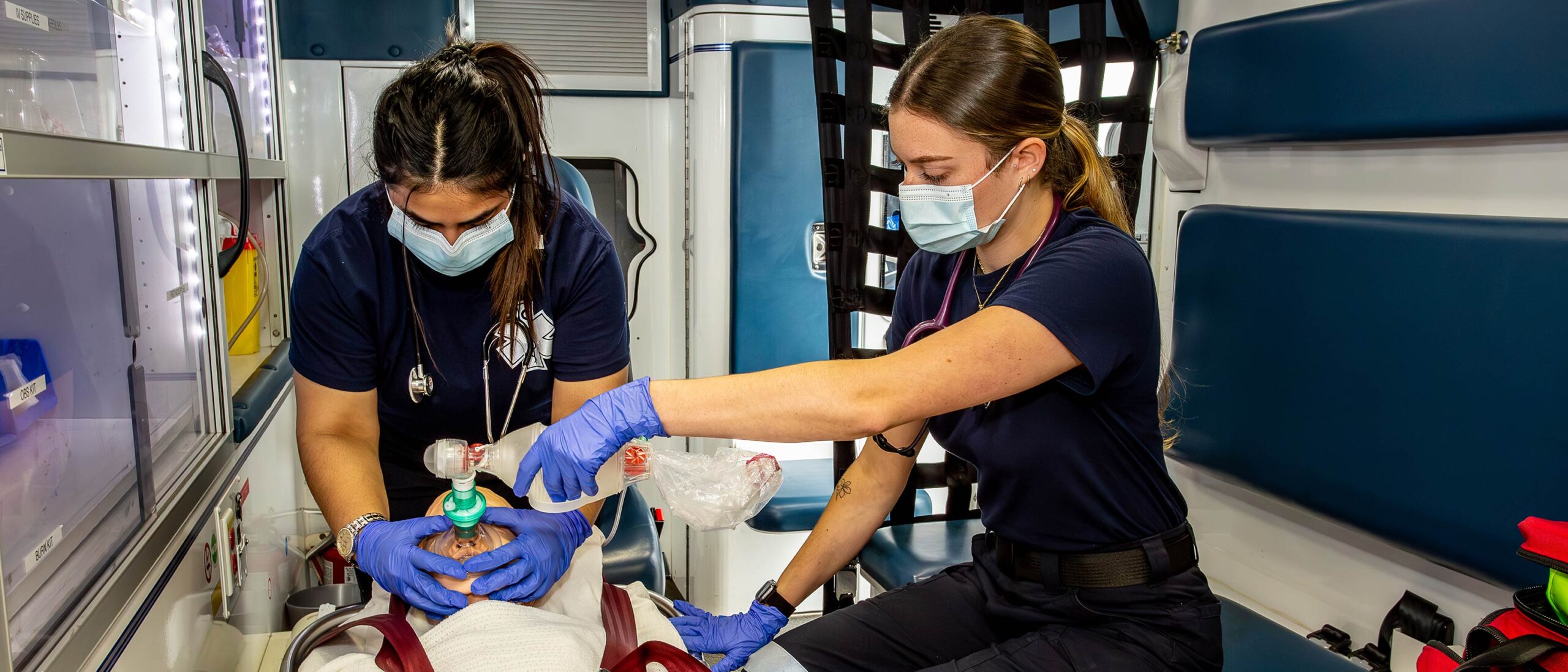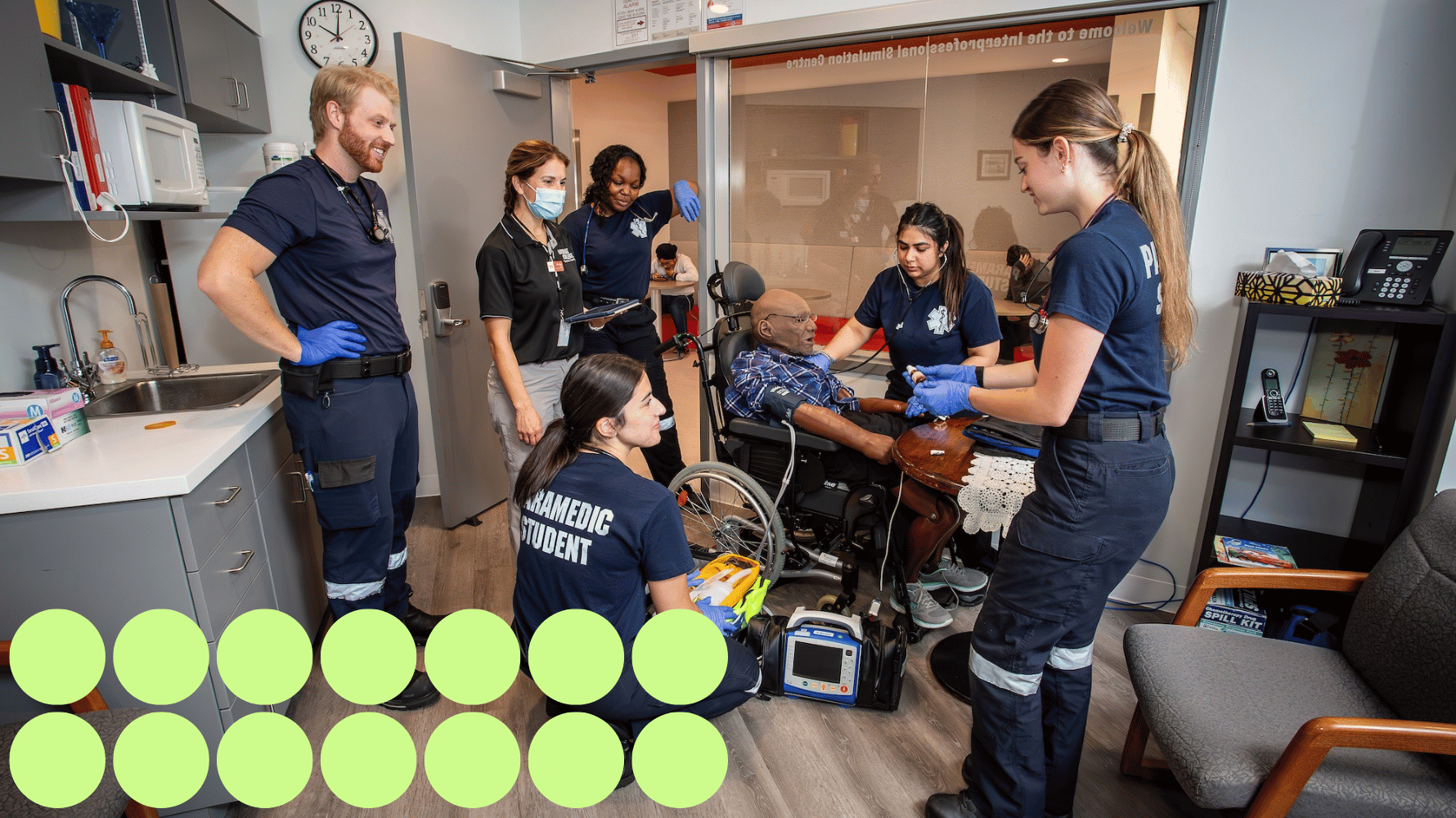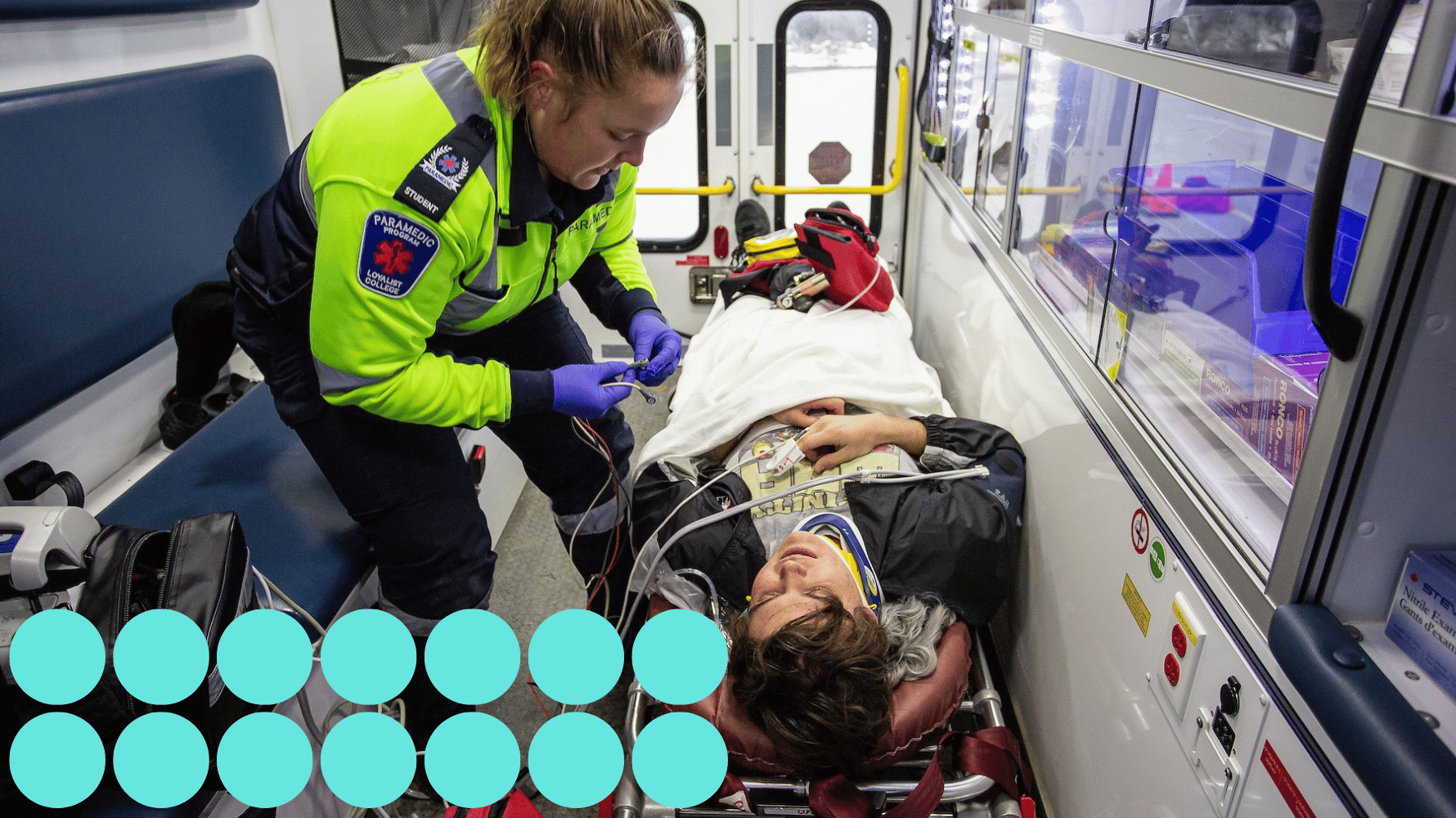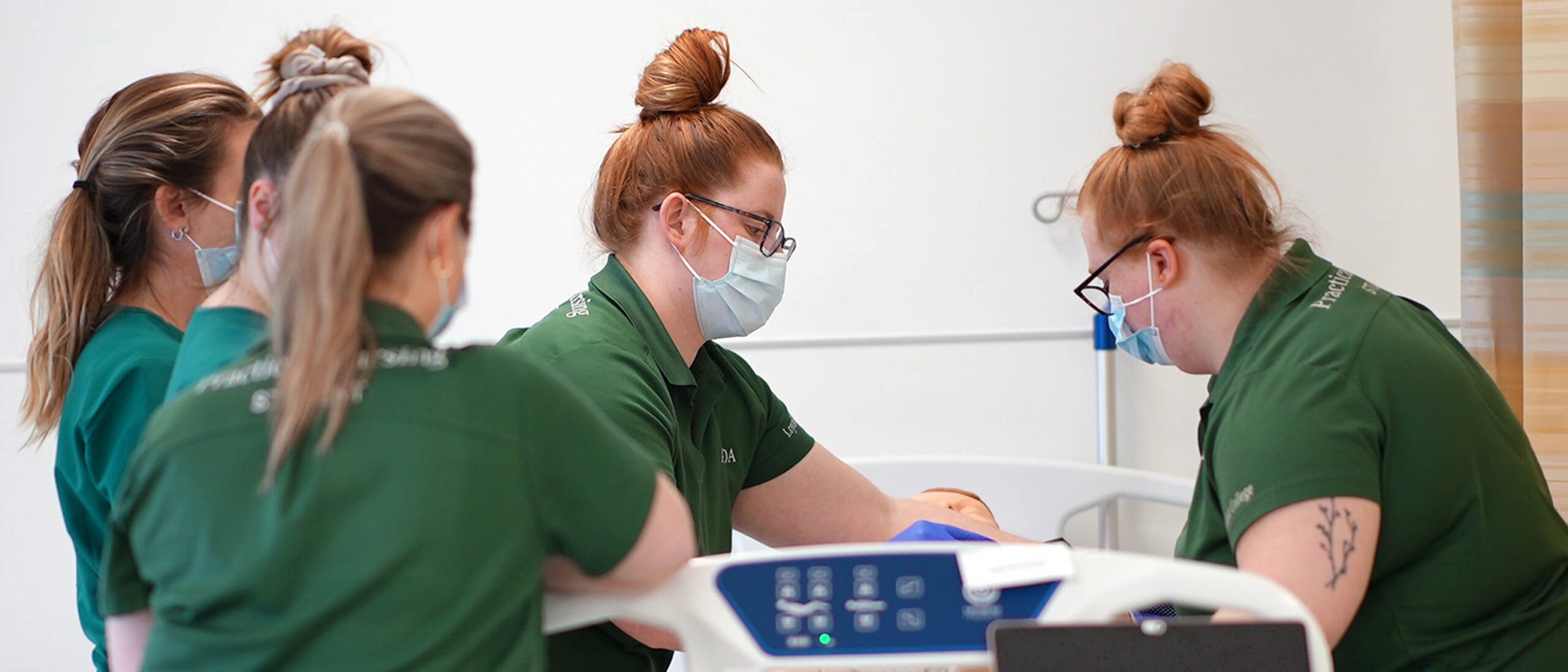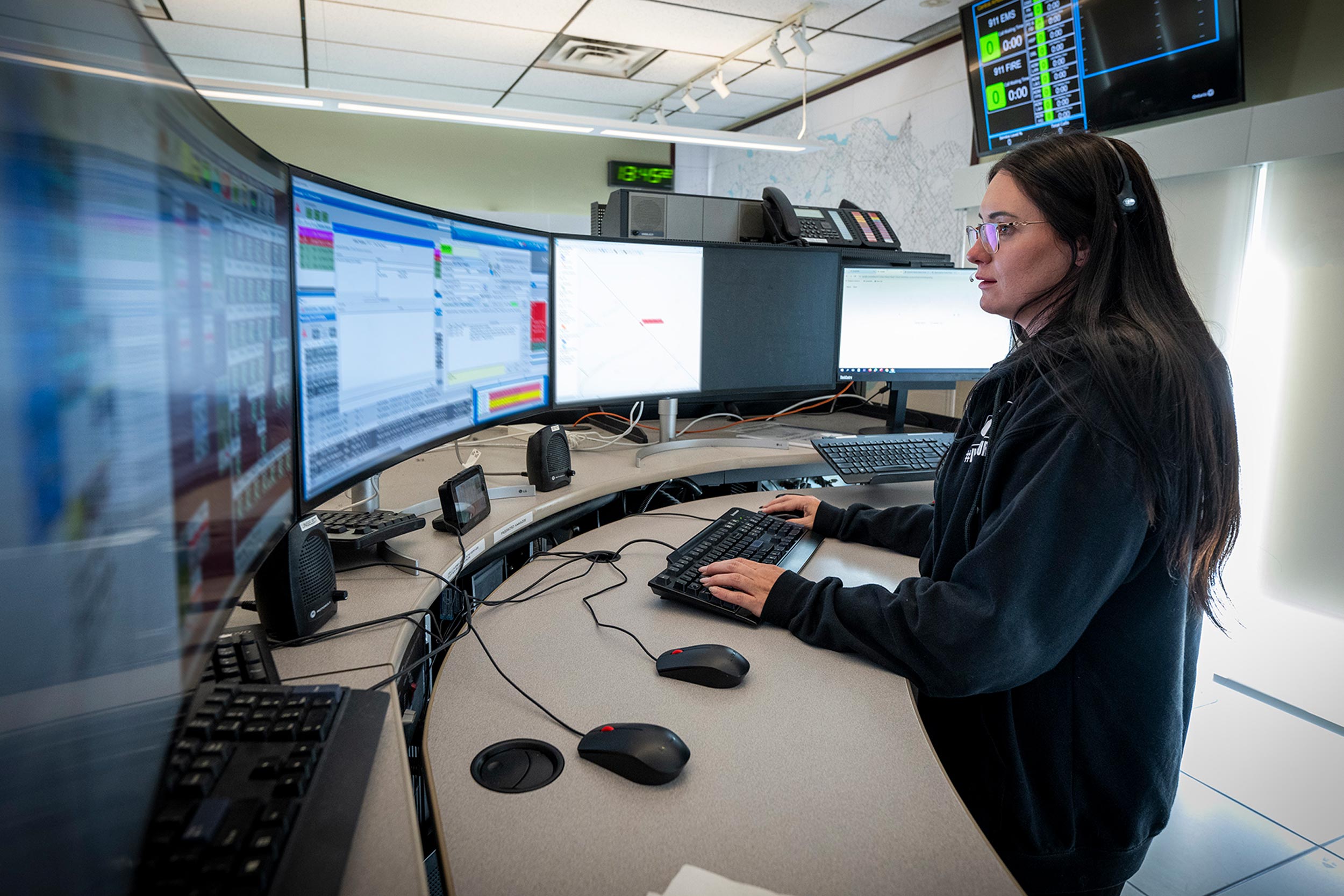Find your career
Graduates will find opportunities working as:
- Primary care paramedics in the ambulance system in Ontario, nationally or abroad.
- Emergency medical responders with municipal fire departments.
- Private ambulance transfer-service members.
- Health and safety educators in industrial settings.
- Grads are qualified to write the Advanced Emergency Medical Care Assistant (A-EMCA) exam offered by the Ministry of Health.
Our grads get great jobs
- Paramedic, City of Toronto
- Firefighter, Brampton Fire and Emergency Services
- Paramedic, Ministry of Health
- Paramedic, Hastings-Quinte EMS
Is it for you?
Have you got what it takes? You may be well suited to a career as a paramedic if you:
- Are seeking a challenge.
- Can think on your feet.
- Want a career where you can make a difference.
- Have a clean driving record.
- Enjoy interacting with people.
- Want to work in an ever-changing interprofessional setting.
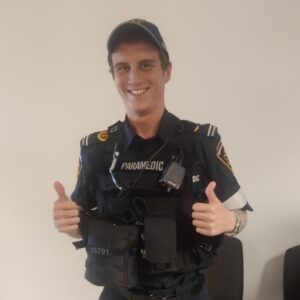
I found that I was very prepared for work in the real world because I had so much hands-on experience in school because of the size of the classes. It also prepared me for scenario testing a lot better.
Elliot, Paramedic

